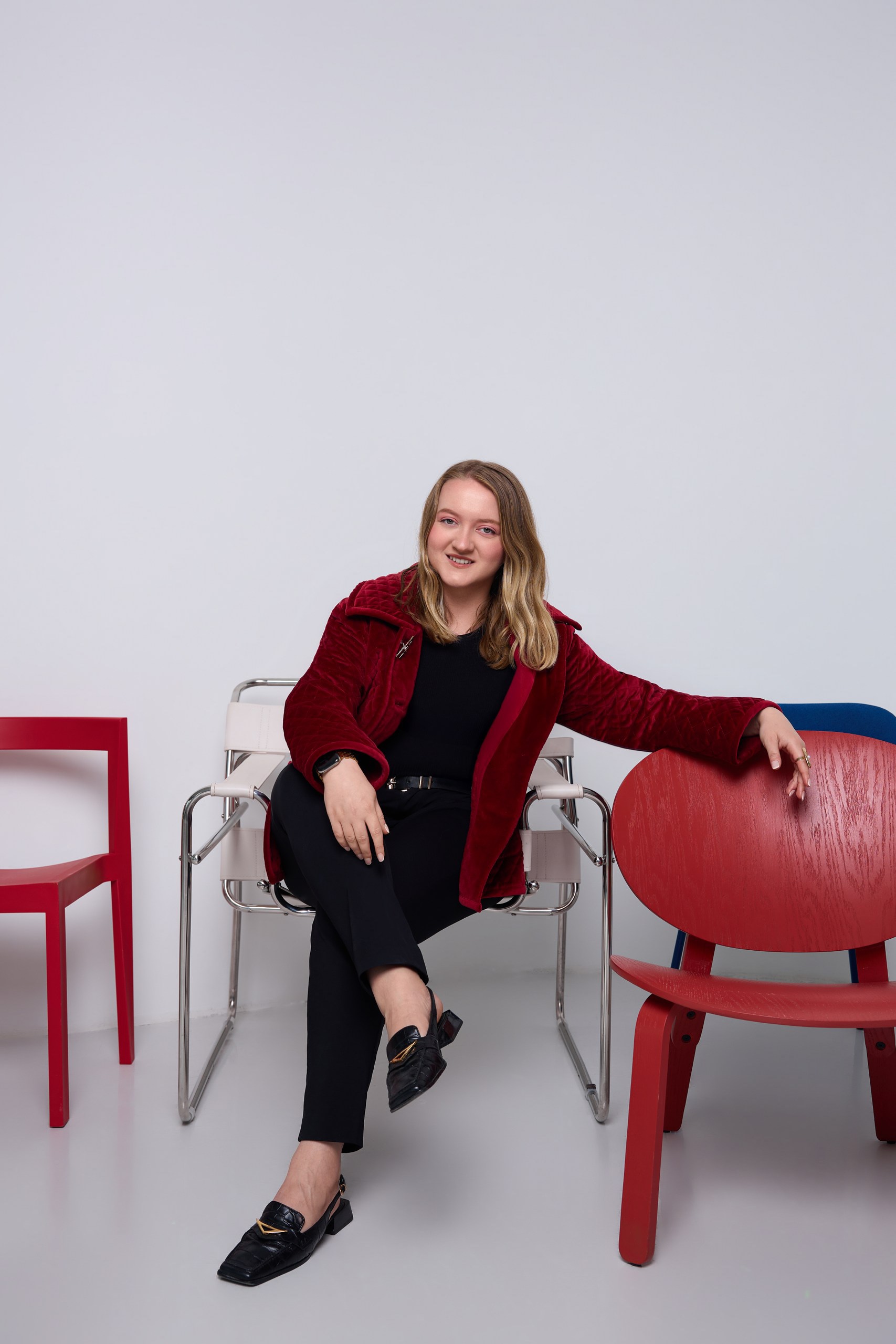Anastasia focused her career on building infrastructure for human presence in space. As Founder of Stellar Amenities, a San Francisco-based consultancy established in 2019, she leads strategic market intelligence and foresight initiatives across aerospace, architecture & engineering, education, and entertainment sectors.
Stellar Amenities developed wayfinding tools for low vision ambassadors for AstroAccess—the first mission to send disabled ambassadors to experience weightlessness—and created a pressure therapy system selected by the Aurelia Institute for zero-gravity testing in 2024.
Her research on self-assembling spacecraft, co-authored with MIT Media Lab Director and former NASA Deputy Administrator Dr. Dava Newman and Space Exploration Initiative Director Ariel Ekblaw, earned the AIAA Best Professional Paper Award in 2020. This work explored how space habitats can evolve while maintaining environments that support human psychological wellbeing during long-duration missions.
Anastasia is a contributor to the Space Architecture Decadal Survey (2025), conducted by the American Institute of Aeronautics and Astronautics. The survey documents the field's current state and establishes priorities for the next decade. She judges global design competitions and has served three times as judge for NASA Human Research Program workshops. As AIAA Space Architecture Technical Committee member and ASCEND 2022 session chair, she advocates for economically viable orbital and lunar development.
Selected for Payload Pioneer's 2023 30 Under 30 by Blue Origin leadership and Department of Defense executives as one of the most promising professionals shaping the space economy, her insights have been featured in Aerospace America, The Washington Post, SXSW, the Venice Architecture Biennale, and by the European Space Agency.
She holds an MS in Space Architecture from the University of Houston and a B.Arch in Urban Planning from Novosibirsk State University of Architecture, Design and Arts.
Stellar Amenities developed wayfinding tools for low vision ambassadors for AstroAccess—the first mission to send disabled ambassadors to experience weightlessness—and created a pressure therapy system selected by the Aurelia Institute for zero-gravity testing in 2024.
Her research on self-assembling spacecraft, co-authored with MIT Media Lab Director and former NASA Deputy Administrator Dr. Dava Newman and Space Exploration Initiative Director Ariel Ekblaw, earned the AIAA Best Professional Paper Award in 2020. This work explored how space habitats can evolve while maintaining environments that support human psychological wellbeing during long-duration missions.
Anastasia is a contributor to the Space Architecture Decadal Survey (2025), conducted by the American Institute of Aeronautics and Astronautics. The survey documents the field's current state and establishes priorities for the next decade. She judges global design competitions and has served three times as judge for NASA Human Research Program workshops. As AIAA Space Architecture Technical Committee member and ASCEND 2022 session chair, she advocates for economically viable orbital and lunar development.
Selected for Payload Pioneer's 2023 30 Under 30 by Blue Origin leadership and Department of Defense executives as one of the most promising professionals shaping the space economy, her insights have been featured in Aerospace America, The Washington Post, SXSW, the Venice Architecture Biennale, and by the European Space Agency.
She holds an MS in Space Architecture from the University of Houston and a B.Arch in Urban Planning from Novosibirsk State University of Architecture, Design and Arts.
